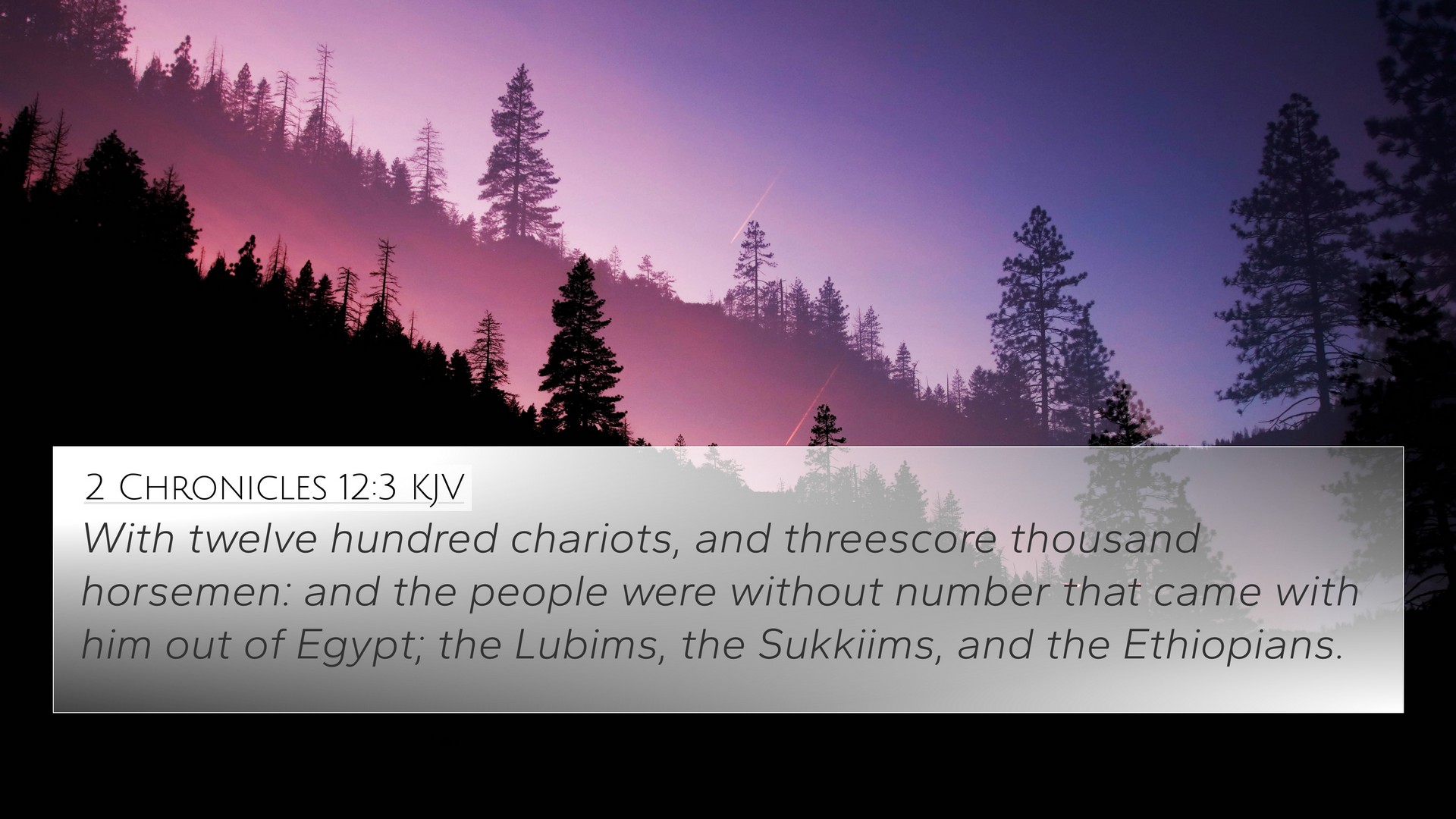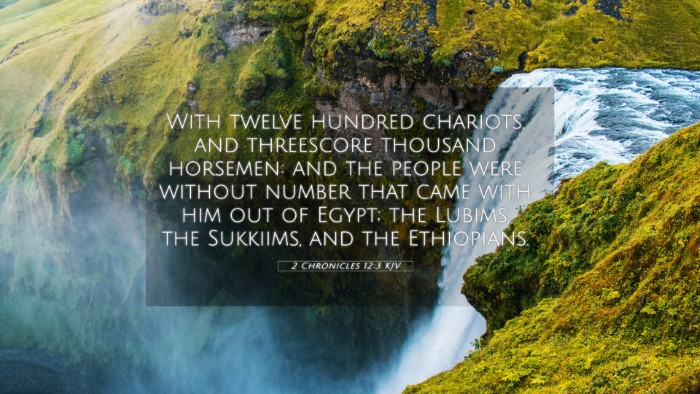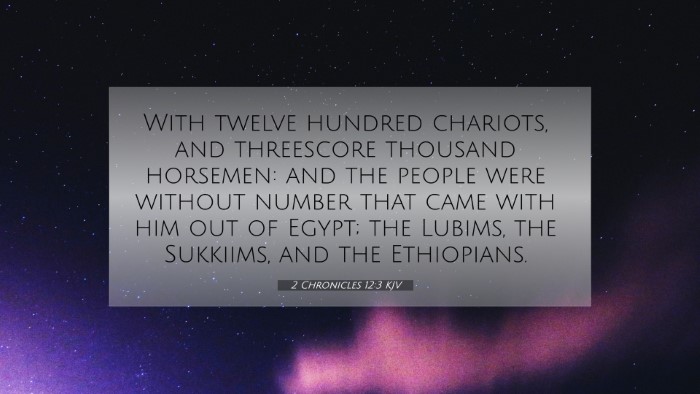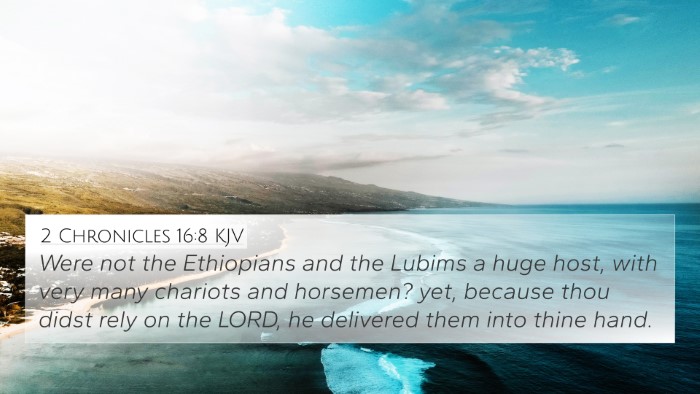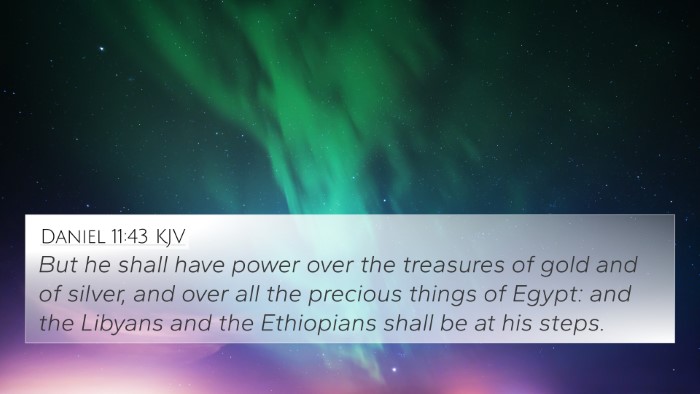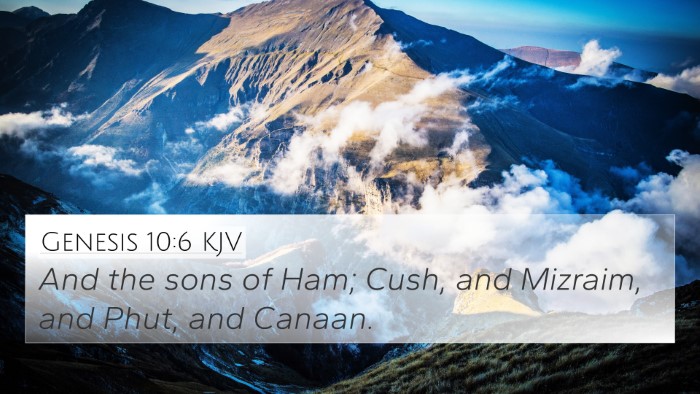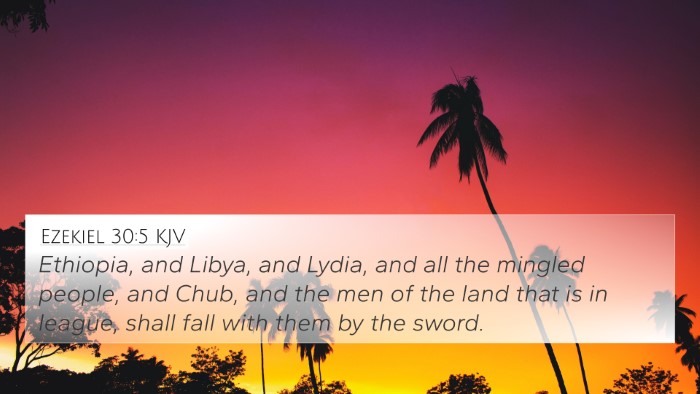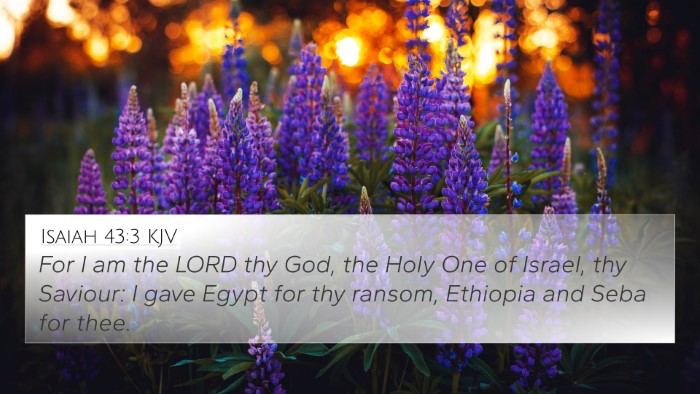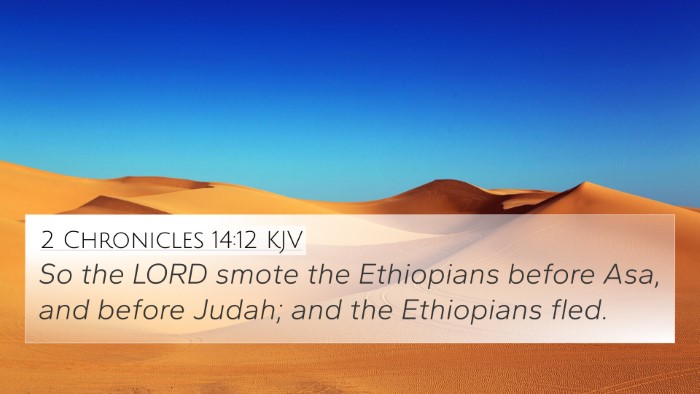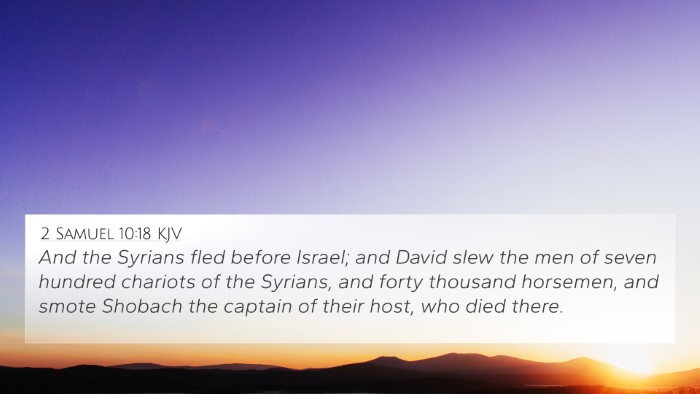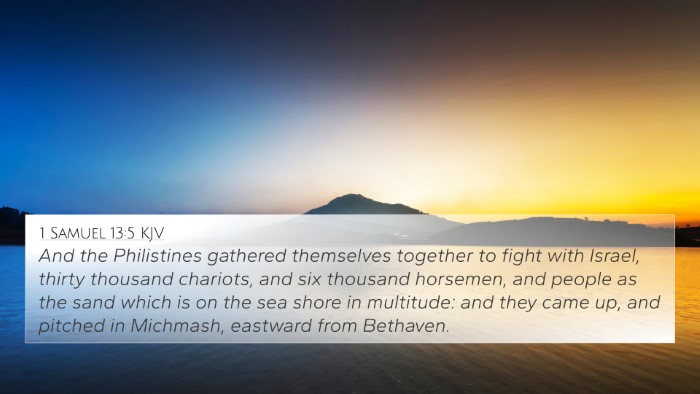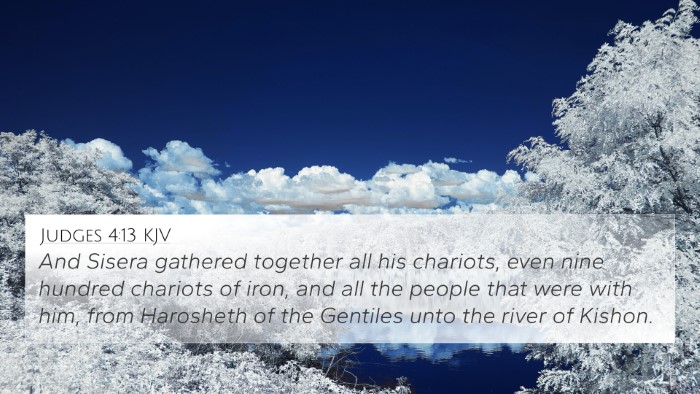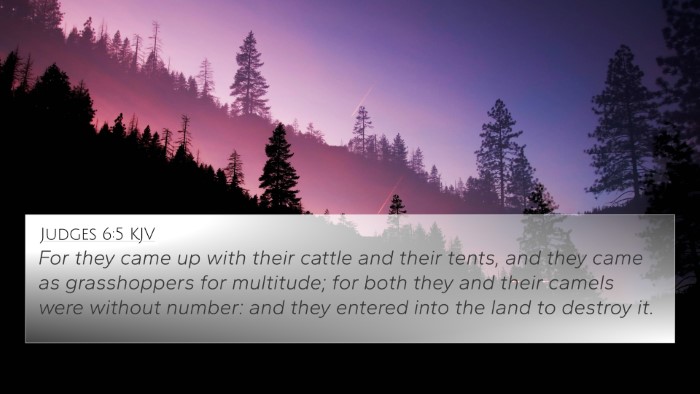Understanding 2 Chronicles 12:3
2 Chronicles 12:3 states, "With twelve hundred chariots and threescore thousand horsemen: and the people were without number that came with him out of Egypt; the Lubims, the Sukkiims, and the Ethiopians." This verse provides a comprehensive picture of the military strength that King Shishak of Egypt brought to Judah in the wake of Rehoboam's tumultuous reign. The following sections outline the verse's meaning, context, and connections to other biblical texts.
Contextual Analysis
This verse falls within the narrative of King Rehoboam's reign, where his decisions led to a split in the kingdom of Israel. When he rejected the advice of the elders and followed the counsel of the young men, it resulted in tension and division. Subsequently, as a consequence of turning away from God, Rehoboam faced military threats, particularly from Egypt.
Commentary Insights
Different public domain commentators elucidate the intricacies of this verse:
- Matthew Henry: Henry emphasizes the divine judgment upon Rehoboam for abandoning the wise counsel that would have led to peace. The multitude of chariots symbolizes overwhelming force and serves as a reminder of God's control over nations. Henry notes that Rehoboam’s failure to adhere to God’s commands allowed for a serious challenge to his rule.
- Albert Barnes: Barnes highlights the significance of the numbers presented, stressing that the overwhelming military might serves to illustrate the gravity of Rehoboam’s situation. The mention of diverse groups from Egypt indicates an expansive coalition aligned against Judah, reflecting the fragility of Rehoboam’s kingdom at this critical juncture.
- Adam Clarke: Clarke provides a historical context by noting Shishak's campaign as an example of Egyptian military prowess. He reflects on the implications of the relationships among neighboring states, suggesting that Rehoboam's policies fostered adversarial relations that invited such attacks.
Thematic Connections
This verse links to several themes and serves as a springboard for scriptural interconnections and cross-references:
1. The Consequences of Disobedience
The military threat from Shishak is directly tied to Rehoboam's disregard for God's law. This theme resonates throughout the Old Testament.
2. Pride and Division
Rehoboam’s decisions highlight the consequences of pride and lack of unity, drawing parallels with other biblical leaders who faced similar fates due to their arrogance.
3. The Role of Foreign Alliances
The verse indicates the importance and danger of foreign alliances, leading to discussions about reliance on external powers rather than God.
4. God’s Sovereignty
Despite the overwhelming odds, the narrative suggests that God remains sovereign over the affairs of nations and individuals, a theme echoed throughout scripture.
Bible Verse Cross-References
Here are several key scripture references that connect with 2 Chronicles 12:3:
- 1 Kings 14:25-26: Details the invasion of Shishak and the plundering of the treasures of the temple.
- 2 Chronicles 11:1: Illustrates the early divisions of Israel and Rehoboam’s attempts at securing his reign.
- 2 Chronicles 9:28: Relates to the wealth of Judah, showing the consequences of disobedience leading to loss.
- Exodus 14:9: Provides insight into the might of Egypt in past conflicts, setting a historical context for Shishak’s army.
- Isaiah 30:1-3: Addresses the dangers of seeking aid from Egypt, resonating with Rehoboam’s plight.
- Proverbs 16:18: Speaks about pride preceding a fall, encapsulating Rehoboam's arrogance.
- Jeremiah 30:20: Highlights God’s faithfulness despite Israel’s failures, suggesting a hope for redemption.
Conclusion
In conclusion, 2 Chronicles 12:3 serves as a significant verse illustrating the ramifications of disobedience and pride that characterized King Rehoboam’s reign. It resonates through inter-biblical dialogues, allowing for thematic connections that reinforce God’s sovereignty, the importance of unity, and the dangers of misplaced reliance. Engaging with cross-referencing biblical texts provides deeper insights and understanding into the narrative, forming a richer tapestry of biblical interpretation and theological reflection.
Further Study Suggestions
To delve deeper into the themes presented in this verse, consider using tools for Bible cross-referencing, such as a Bible concordance or a cross-reference Bible study guide. Such resources can aid in identifying connections between this verse and other significant passages, enhancing your understanding of biblical themes. For a comparative Bible verse analysis, exploring parallels between this event and similar narratives in both the Old and New Testaments can provide a broader perspective on God’s overarching narrative throughout scripture.
